- Author Jason Gerald gerald@how-what-advice.com.
- Public 2023-12-16 10:50.
- Last modified 2025-01-23 12:04.
If you can't use the computer because you don't remember the password, that sucks, right? Especially if you are trying to access important files in it. Fortunately, there are a few simple steps you can take to access your Mac or Windows computer without a password.
Step
Method 1 of 7: Changing Windows 8 or 10 Password Over the Internet
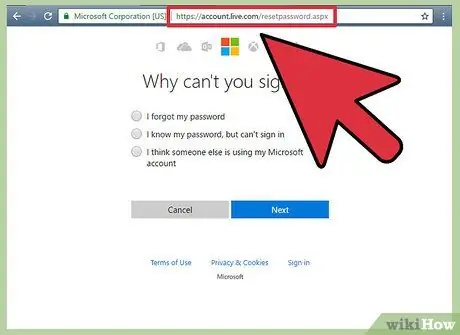
Step 1. Use a different computer to access the Live.com password change page
Go to https://account.live.com/resetpassword.aspx in a browser, then click I forgot my password. After that, click Next.
You can only do this step if you have a Microsoft account on your computer. By default, you will be prompted to sign in with a Microsoft account when you first set up Windows 8 or 10 so you can try this step. If you selected the Local Account option when setting up your computer for the first time, read the next steps
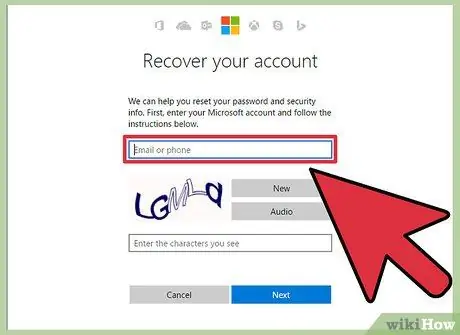
Step 2. Enter your Microsoft account email address in the field provided
Generally, Microsoft accounts end with live.com, hotmail.com or outlook.com. If your account is not recognized by the password reset page, try ending the account name with one of the domains above (for example, try
juliaperrez@live.com
instead
juliaperrez
). Enter the code in the image that appears in the field provided if prompted, then click Next.
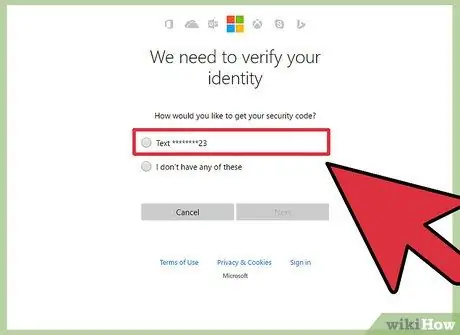
Step 3. Select a verification method to receive a password change code
- Select the Phone number or Non-Microsoft recovery email address option to receive a replacement code via a non-Microsoft mobile number or email address. After that, click Send Code.
- If you can't access the email address or phone number you entered when you first created your Microsoft account, click I don't have any of these. Under the “Enter an email address that's different from the one you're trying to recover, enter a non-Microsoft email address that you can access, then click Next to receive the passcode at that email address.
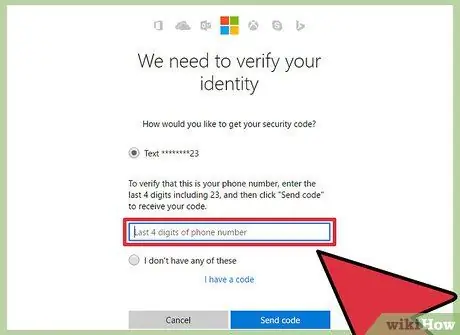
Step 4. Enter the code you received from Microsoft under the Enter your security code field, then click Next to reset the password
- If you receive the code via SMS or email, you will be able to enter a new password, which you can then use to log into Windows.
- If you can't access your emergency phone number or email address, you'll be asked to fill out an account recovery form. Fill in as much information as possible on the form, such as basic information, billing information, and previous passwords. The data will be sent to a Microsoft employee, who will validate the information and provide a password change link to the email address you provided.
Method 2 of 7: Changing Windows 8 or 10 Password from Safe Mode

Step 1. Restart the computer from the login screen
The process for restarting the computer from this login screen is a little different than usual. Turn on the computer until the login screen appears, then click the Power icon and hold down Shift while clicking Restart. You must restart your computer twice before you can enter safe mode.

Step 2. Select the option to restart the computer
After the computer restarts, you will see the Choose an Option screen. Click Troubleshoot > Advanced Options > Startup Settings, then click Restart to see the new options.
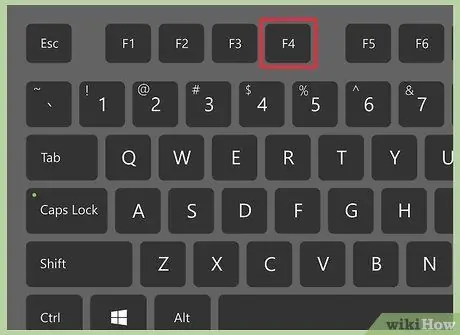
Step 3. Guess
Step 4. or F4 to enter safe mode, depending on the type of computer.
The safe mode login screen will appear.
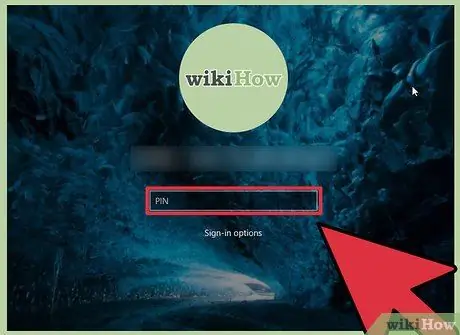
Step 4. Log in as Administrator by clicking on the arrow icon and selecting the Administrator account from the list
You don't need to enter a password.
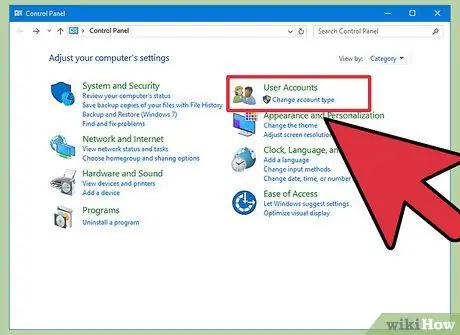
Step 5. Open the User Accounts control panel
Press Win+X, then click Control Panel > User Accounts.
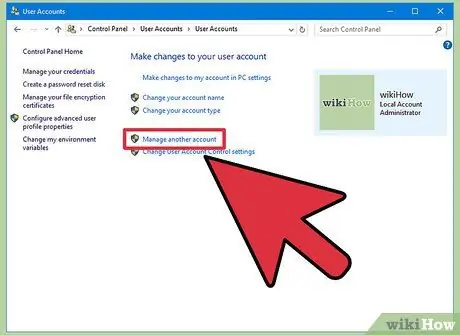
Step 6. Click Manage Another Account, then select the account you want to change the password for
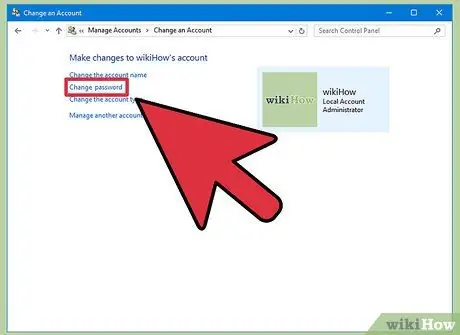
Step 7. Click Change Password, and enter the new password in the provided field twice
After that, click Save.
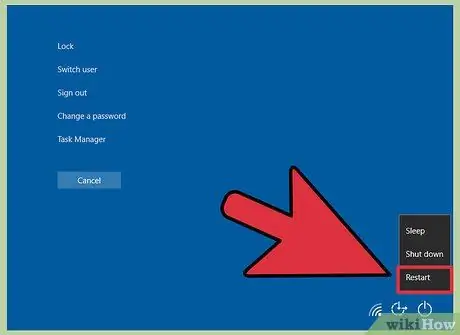
Step 8. Restart the computer
Press Ctrl+Alt+Del, click the Power icon, then click Restart. When the computer restarts normally, you will be able to log in to the account you just changed the password for with the new password.
Method 3 of 7: Replacing Windows Password with Dedicated CD

Step 1. Use the password change CD or USB that you created earlier
This step you can only do if you have created a password change CD/USB before, and can be tried if you are using Windows 7 and above. To change the computer password with Windows XP, see the following article.
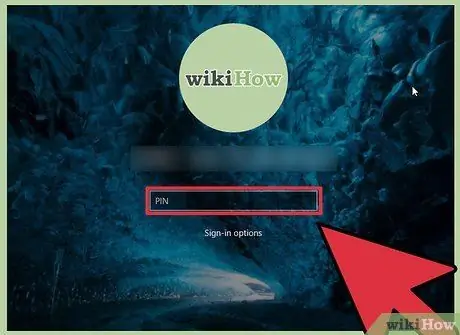
Step 2. Try logging into Windows with the wrong password
You will receive an error Username or password is incorrect. Click OK.
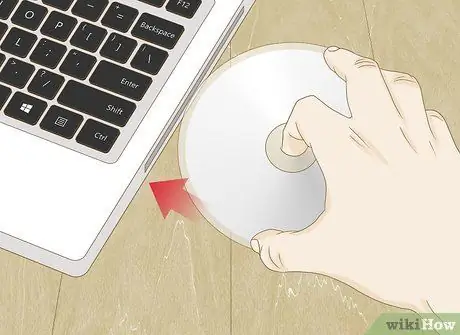
Step 3. Insert the password change CD/USB, then click Reset Password
A password change wizard will appear on the screen. Click Next to start the process.
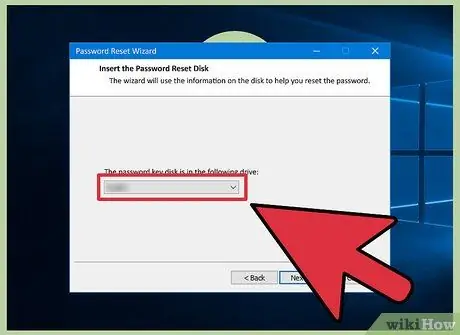
Step 4. Select a password change CD/USB location
After clicking Next, a list of drives will appear on the screen. Select the drive containing the password change CD/USB, then click Next.
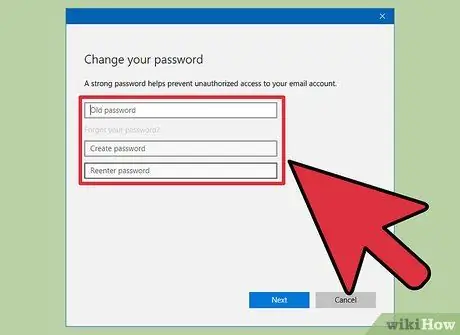
Step 5. Enter a new easy-to-remember password, then repeat it to confirm the password change
Once done, click Next. You can also write a password reminder in the Type a new password hint field. This reminder can be used if you forget your password. Although optional, a password reminder will be of great help to you.
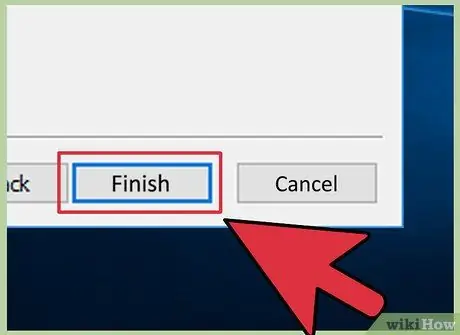
Step 6. Click Finish to close the password manager
You will be taken back to the Windows login screen. Now, you can log in to your computer with a new username and password.
Method 4 of 7: Changing Windows 7 or Vista Password with a System Repair CD
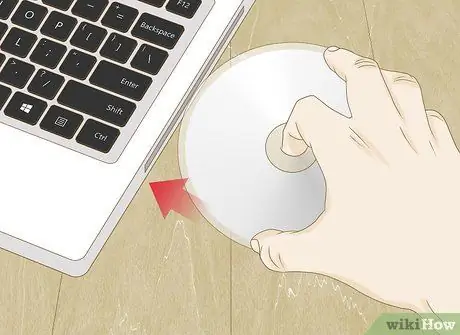
Step 1. Insert the system repair CD into the CD drive
If you've never created a system repair CD, ask a friend who has a Windows 7 computer to help you create one.
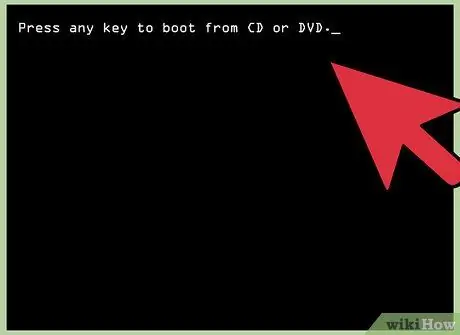
Step 2. Restart the computer from the system repair CD, then press any key when prompted
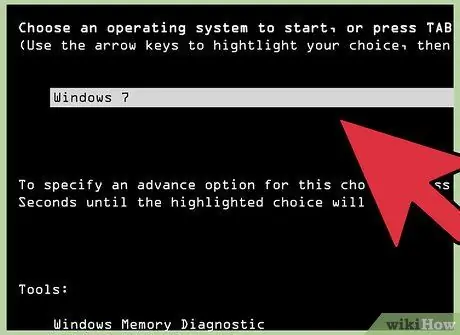
Step 3. Select the drive and operating system
Generally, you will only see one option, unless your computer has more than one operating system. Select the drive labeled "Windows" and note the drive letter (usually C: or D:). Make sure the Use recovery tools option is selected, then click Next.
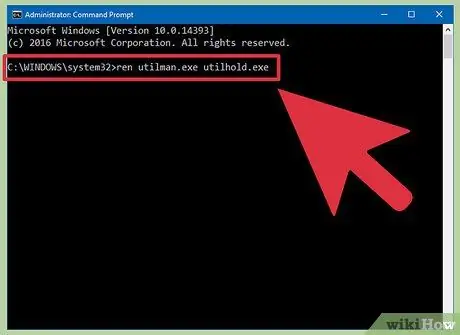
Step 4. Select Command Prompt from the menu
A command line window will appear on the screen. Use the following command to rename multiple files:
-
insert
C:
or
D:
- , according to the Windows drive letter, then press Enter
-
insert
windows\system32
- and press Enter
-
insert
ren utilman.exe utilhold.exe
- and press Enter
-
insert
copy cmd.exe utilman.exe
- and press Enter
-
insert
exit
- and press Enter
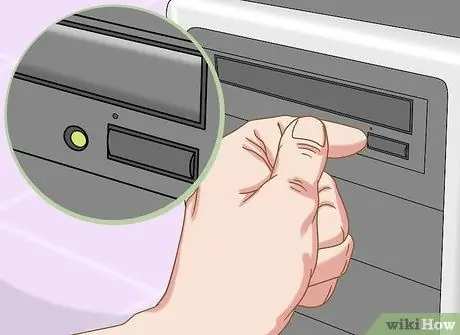
Step 5. Eject the CD, then restart the computer
When the login screen appears, click the Ease of Access button in the lower-left corner of the screen. Generally, the Ease of Access window will appear, but this time it will open a command line window. You can quickly restore these settings once you're done changing your password.
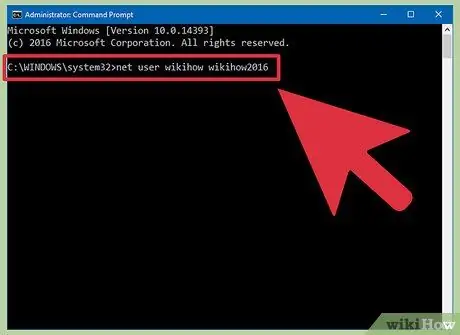
Step 6. Set password with command
net user username password
.
Replace "username" with your username, and "password" with your new password. When you're done, enter
exit
to close the command line window.
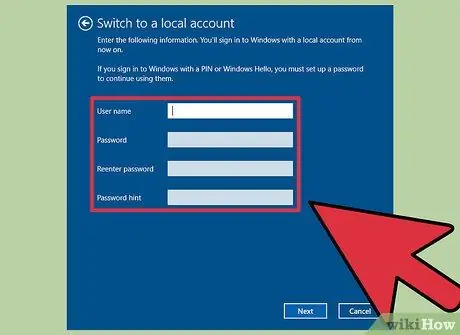
Step 7. Log in with a new username and password
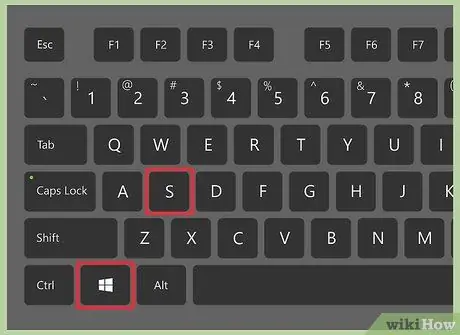
Step 8. Press Win+S to open the search box, and enter
command
.
After that, right-click Command Prompt in the search results, then click Run as Administrator.
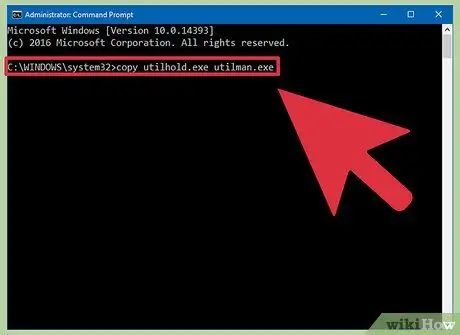
Step 9. Enter the following command into the command line to restore the Ease of Access window
-
insert
C:
or
D:
- , according to the Windows drive letter, then press Enter
-
insert
cd windows\system32
- and press Enter
-
insert
copy utilhold.exe utilman.exe
- and press Enter
-
insert
exit
- and press Enter.
Method 5 of 7: Changing Mac Password with Another Administrator Account
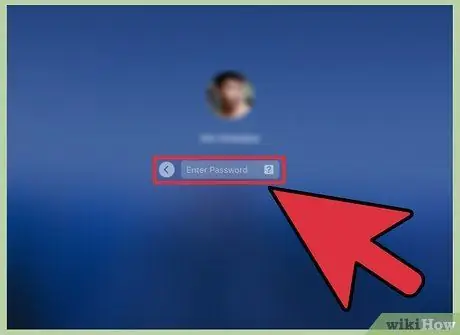
Step 1. Log in to the Mac with an Administrator account
If you have an Administrator account that is different from your personal account, you can reset your password through the profile window.
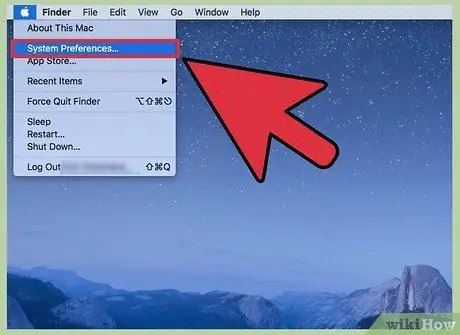
Step 2. Open System Preferences, and enter the Administrator account information if there is a keyboard icon on the screen
After that, click on the Users & Groups icon.
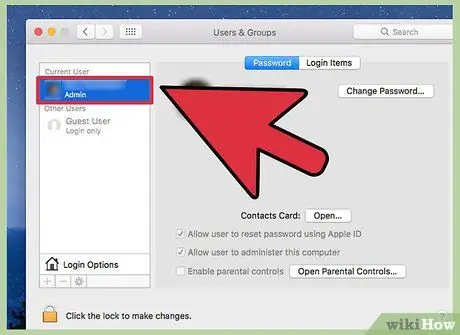
Step 3. Select the account for which you want to change the password
Click the Reset Password button, follow the on-screen prompts, and enter a new password. After clicking the button, the account owner will be asked to reset his own password.
Method 6 of 7: Replacing Mac Password with Apple ID
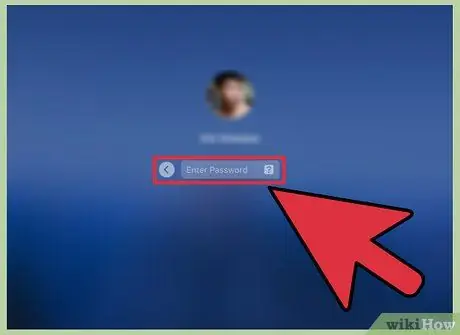
Step 1. Try logging in to the Mac with the wrong password three times
After the third try, you will be able to reset your password with your Apple ID. If the message does not appear, you cannot use this method.
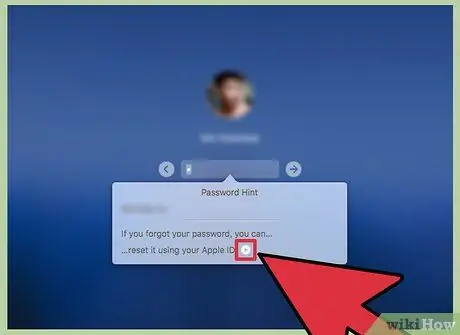
Step 2. Click the arrow button next to the password reset message
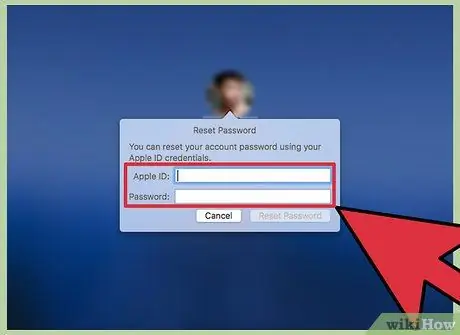
Step 3. Follow the on-screen prompts to change the password
Choose a password that's easy to remember, then restart the computer when prompted.
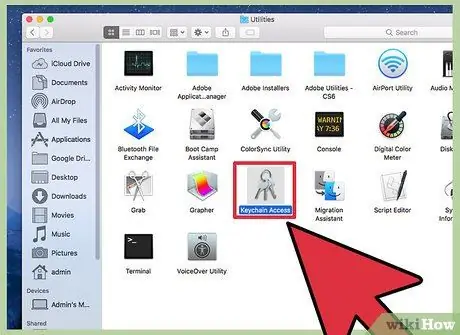
Step 4. Create a new keychain
Once the computer restarts, log in with a new password and create a keychain so you can access the system.
- If you see the Create New Keychain message, click it, then follow the onscreen instructions.
- If you don't see the message, open the Applications folder and click Utilities > Keychain Access > Preferences. Select Reset my default keychain, then follow the onscreen instructions.
Method 7 of 7: Changing Mac Password with Reset Password Assistant
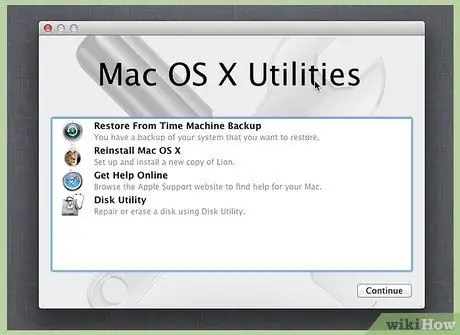
Step 1. Restart the computer into Recovery OS mode
If you are using FileVault, wait for the Use your power button to shut down and start again in Recovery OS message to appear, and press the Power button for a few moments. Wait for the computer to turn off, then restart the computer with the Power button. You can only try this method if you are using FileVault on your computer.
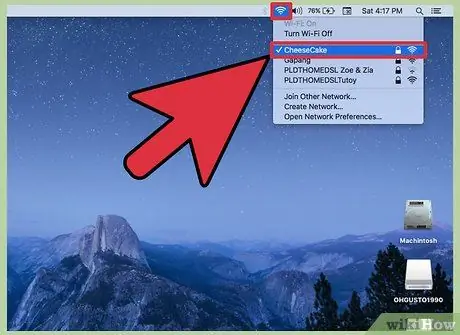
Step 2. Connect the computer to the internet in Recovery OS
System Recovery OS will directly connect to the internet if you use ethernet. To connect your computer to a Wi-Fi network, hover your mouse at the top of the screen to display the Wi-Fi icon, then click the icon.
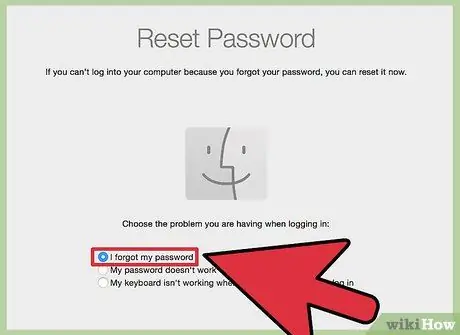
Step 3. Select the option in the Reset Password screen
When the computer is in Recovery OS, you will see a Reset Password screen with three options. Select I forgot my password, then click Next.
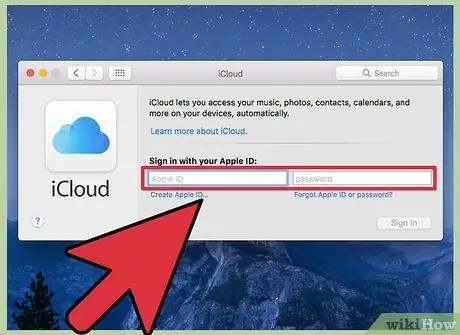
Step 4. Enter your Apple ID and password to sign in to iCloud
Use the Apple ID and password instead of the local computer account. Once you are logged in, Recovery OS will download the password recovery key from the iCloud server.
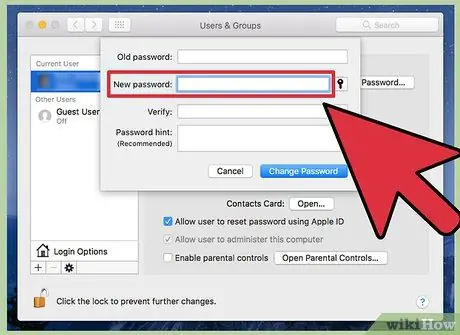
Step 5. Once the key is downloaded, reset the local account password
After that, click Restart to restart the computer. Once the computer restarts, you can log in with the new password.
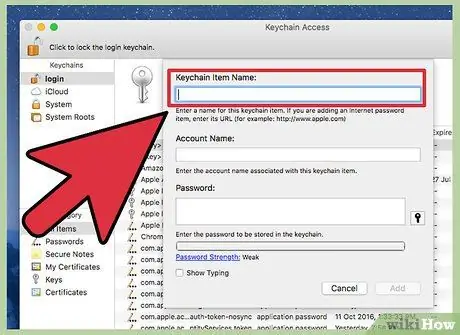
Step 6. Create a new keychain
If you see a message such as The system was unable to unlock your login keychain (depending on OS X version), click Create New Keychain and follow the on-screen instructions to get rid of the message. If you see the No Keychain message, create a keychain manually. Open the Applications folder, then click Utilities > Open Keychain Access > Preferences. Select Reset my default keychain, then follow the onscreen instructions.
Tips
- To change the computer password with Windows XP, see the following article.
- Create a password prompt and a recovery CD/USB if the option is available.
- If you have a Windows 7 computer and can use Linux, you can try resetting Windows password without Windows CD/USB or password recovery CD/USB.






